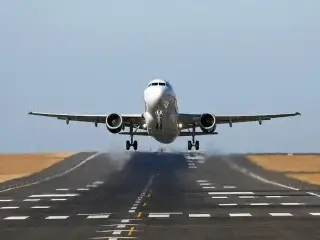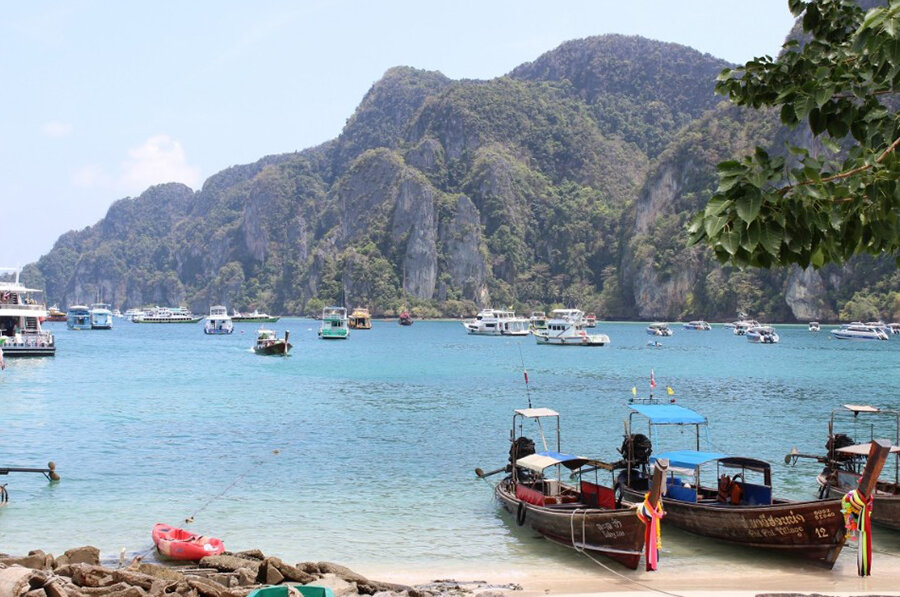read also
 Nepal’s Tourism Shows Resilient Growth
Nepal’s Tourism Shows Resilient Growth
 Global Aviation Trends Shaping 2026
Global Aviation Trends Shaping 2026
 Apartment rents in Tbilisi: rates fell by 11% — TBC Capital report
Apartment rents in Tbilisi: rates fell by 11% — TBC Capital report
 India’s Hospitality Sector in 2026
India’s Hospitality Sector in 2026
 Winter 2025 market report signals cautious recovery
Winter 2025 market report signals cautious recovery
 New Zealand investor visa: new opportunities to buy residential property
New Zealand investor visa: new opportunities to buy residential property
Tourism & hospitality / Analytics / Reviews / Russia / Tourism Russia / Thailand / Turkey / Egypt / United Arab Emirates / Georgia 20.02.2025
Russians Increase Foreign Travel Bookings Following Dollar Depreciation

Emerging geopolitical shifts contributed to a decline in the U.S. dollar exchange rate against the ruble in February 2025. Against this backdrop, travel companies have noted a rise in interest in booking trips, as reported by Rossiyskaya Gazeta, though there has been no sharp surge. Experts believe such a spike could occur if the dollar reaches 80 rubles.
The vice president of ATOR and CEO of the tour operator Space Travel, Artur Muradyan, noted that demand is stable but not experiencing an overwhelming boom. "Yes, there has been an increase in inquiries; travelers are more actively monitoring prices and making tangible vacation plans," he said.
The choice of destinations remains largely unchanged, with Thailand, the UAE, Egypt, and Turkey leading. Turkey is considered for spring-summer vacations, while trips to the UAE and Egypt are typically booked no more than three weeks in advance. Booking depth for Thailand is slightly higher—around a month—due to traditionally high demand for airline tickets. The tour operator FUN&SUN (formerly TUI) reports that travelers planning trips to the UAE, Egypt, and Thailand are looking at vacations between February and April, while Turkey is mainly being considered for the summer season.
ITM Group has observed a certain growth in sales but does not attribute it to currency market volatility. Instead, they link it to the upcoming holidays and early booking promotions for summer vacations. "Our clients have developed immunity to exchange rate fluctuations. Previously, tourists would rush to book trips when the ruble strengthened, but now we don’t see such a frenzy," noted Alena Gorbunova, head of the sales department. She added that Russian travelers are increasingly interested in combined tours to Indonesia (Bali), China, Vietnam, Japan, Thailand, and the Philippines. Latin American destinations, especially Brazil, are also popular, particularly with the upcoming carnival.
Additionally, Georgia remains a favored destination among Russians due to its simple entry and stay requirements. In Batumi, hotel bookings continue to grow even in the off-season. In Q4 2024, the number of booked nights increased by 20.8% to 56,200. Throughout 2024, Georgia recorded over 1.4 million visits from Russian tourists, making them the leading group. They also contributed the most revenue, exceeding $850 million.
According to Ostrovok, hotel bookings in Georgia between May and November 2024 increased by 75% compared to the same period in the previous year. This timeframe was chosen for analysis because air travel between Russia and Georgia resumed in May 2023. Analysts link the country's rising popularity to expanded flight programs from Moscow and other regions. Direct flights between the two countries are operated by Azimut, RedWings, and Georgian Airways, which are continually adding new routes and cities. Currently, direct flights to Georgia are available from Saint Petersburg, Samara, Moscow, and Yekaterinburg, as well as from Kazan, Ufa, Sochi, and Mineralnye Vody. The bilateral aviation agreement includes all three international airports in Georgia—Tbilisi, Batumi, and Kutaisi.
Georgia's share of total foreign accommodation bookings is also growing. In 2022, it accounted for 3%, rising to 4% in 2023 and reaching 5% in 2024. In terms of bookings, Georgia ranks behind only Belarus, Turkey, and Thailand. Ostrovok's managing director, Daria Kochetkova, emphasized that Georgia offers Russian tourists a wide range of vacation options, including sightseeing, gastronomy, adventure tourism, and skiing. The country has a broad selection of accommodations for any budget, from international hotel chains and boutique hotels to guesthouses. Additionally, ski lodges are available, offering food, beverages, restrooms, changing rooms, and relaxation areas for daytime visitors. "The absence of visa restrictions and the expansion of direct flights make travel logistics as simple and convenient as possible, so we expect demand for this destination to continue growing," she stated.
Experts note that there has been no drastic shift in demand for foreign tours, likely because the dollar's depreciation has not been dramatic—it stood at 90.43 rubles as of February 20, 2025. "The current situation does not appear abnormally positive or negative for tour operators. After all, 90 rubles per dollar is still quite high," confirmed ATOR vice president Artur Muradyan. "We should also remember that tour operators apply internal exchange rate adjustments of 3–6% above the Central Bank rate due to the complexity of processing payments. However, we have not observed significant price changes from suppliers at this time."
Tourism expert Maya Kotlyar believes that a surge in outbound travel from Russia will only occur if the dollar drops to 80 rubles. "We don’t see a sales boom right now, just a modest 10% increase compared to last year," she noted. "Early booking promotions have a greater impact on travel flow, and right now, they offer excellent deals."
Tatiana Rassokhina, vice-rector of the Russian International Academy of Tourism, explained that tour operators set their own exchange rates in contracts, with most using an estimate of around 100 rubles per dollar. However, she agrees that if the ruble continues to strengthen, tour operators may revise their prices. Nevertheless, she doubts that prices will drop significantly, as all agreements with airlines and other service providers have already been finalized.


